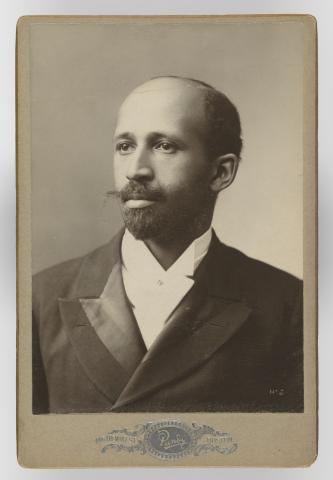
W. E. B. Du Bois (1868–1963)
One of the most important intellectuals at the turn of the nineteenth century, W. E. B. Du Bois studied the question of race in the United States. An anti- imperialist, he strongly objected to the United States retaining control over the Philippines. By 1903, the Philippine-American War had officially ended, but Filipino resistance continued through 1913 in the southern, predominantly Muslim island of Mindanao.
In his writing, Du Bois reflected on the mainstream idea that for African Americans, “only hope lies in emigration beyond the borders of the United States.” At the time, Du Bois instead concluded, “nothing has more effectually made this program seem hopeless than the recent course of the United States toward weaker and darker peoples in the West Indies, Hawaii, and the Philippines,” placing the War of 1898 into post-Reconstruction debates around race.
Audio Transcription: I think it's important to realize that for many people, African American presence in the military was really part of the struggle for civil rights. The notion was that if you shed blood for your country, your country would have to treat you better, and hopefully, equality would follow for everyone. The secondary goal was to use the Army as a training ground. The military provided African Americans with a career, not a job. And that's really important, because for most African Americans, you went from job to job. You weren't sure about your future. The military gave you a career and a pension. And so you see this debate. You see people like Chaplain Steward who recognize that what is crucial is to achieve success in the Spanish-American War and the Philippine War. He recognized the sacrifice of the soldiers, he recognized their loss, and he celebrated their commitment to duty. There are others who really felt that, yes, the military was a good option, but that there were higher moral standards. There was a strong sense among people like W.E.B. Du Bois and some of the intellectual leadership that in essence, what these soldiers were doing was humiliating and defeating other people of color. And the notion was that that's not the right move for African Americans. So it's a real debate. But it was a debate where overwhelmingly African Americans, even when they worried about this notion, were really sort of supportive, ultimately, of the military as a way forward.
– I'm Lonnie Bunch, the Secretary of the Smithsonian Institution. I was formerly the founding director of the National Museum of African American History and Culture.